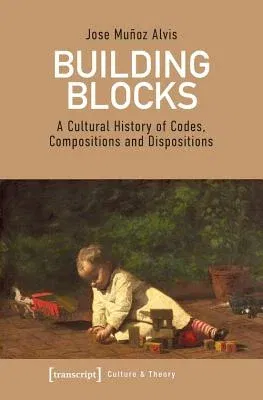Jose Mu Alvis
(Author)Building Blocks: A Cultural History of Codes, Compositions, and DispositionsPaperback, 15 August 2020

Qty
1
Turbo
Ships in 2 - 3 days
In Stock
Free Delivery
Cash on Delivery
15 Days
Free Returns
Secure Checkout

Part of Series
Culture & Theory
Print Length
330 pages
Language
English
Publisher
Transcript Publishing
Date Published
15 Aug 2020
ISBN-10
3837647811
ISBN-13
9783837647815
Description
Product Details
Author:
Book Format:
Paperback
Country of Origin:
US
Date Published:
15 August 2020
Dimensions:
22.86 x
15.24 x
1.7 cm
ISBN-10:
3837647811
ISBN-13:
9783837647815
Language:
English
Pages:
330
Publisher:
Series:
Weight:
430.91 gm